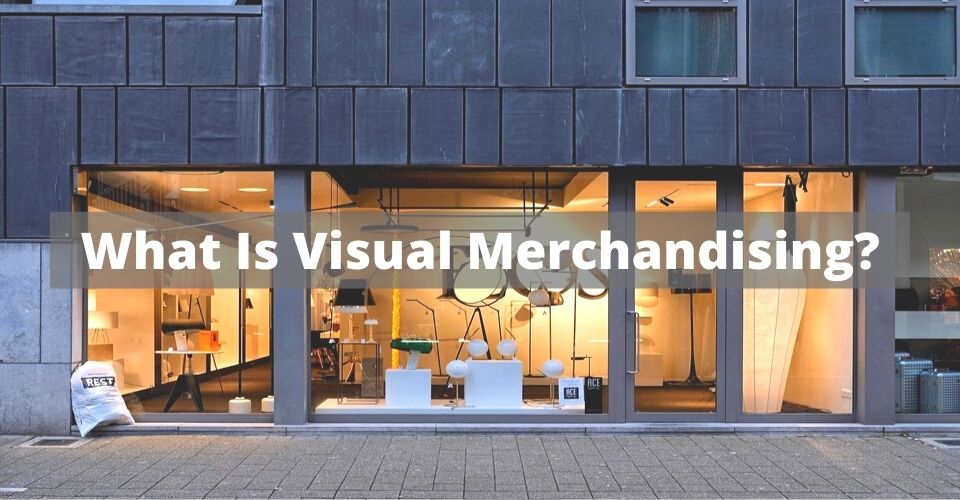Visual merchandising is an essential retail strategy that helps maximize the aesthetics of a product to increase sales. Let’s say you have the best products or prices on the market, but if your stores and merchandise are poorly displayed, customers might turn to your competitor. If done well, visual merchandising can create brand awareness while increasing brand loyalty. Read on to find out more about this fascinating concept!
Overview
What is visual merchandising?

Visual merchandising is the retail practice of designing and displaying products in a way that will attract customers into the store. This is done by creating displays that accentuate an item’s appearance, features, benefits, and uses in a visually captivating way. Everything we see, from window displays to in-store signage, is a form of visual merchandising.
Eventually, it is all about helping establish a brand’s identity, create a seamless shopping experience, and overall, boost sales.
Types of visual merchandising
Following are some of the most common types of visual merchandising that retailers should consider using for their stores.
Window displays

Display windows are glass enclosures on the exterior of a shop. Very often, they are designed with elaborate displays to attract customers and capture the spirit of a brand. Window displays are so flexible that they can be used in many different ways to convey meaningful messaging about the brand’s new items and promotions.
Interactive displays

Touchscreen technology is a great way to draw people into a specific display of a specific product. You can even take this to a whole new level by incorporating virtual reality/augmented reality (VR/AR) and upgrade your in-store experience.
For example, Sephora offers a variety of tech options to personalize their customers’ shopping experience. These include virtually trying on makeup using AR, sampling a fragrance via a touchscreen and scented air, etc.
►►►► Please visit our products: digital banking, situation analysis, Shopify markets, Vietnam Photography Tour, Photography Tour Guide Viet Nam, supply chain operations management, fintech ai, Multi Store POS, Woocommerce POS, Mobile POS, White label POS, POS Reseller, Beauty Supply Store POS, Retail POS and Vape shop POS
Mannequins

These are like a staple of almost every apparel store. Mannequins have been around for a while but it doesn’t mean that they are out of style. By using these, customers can visualize how clothes look like on a person without the need for trying them on. Clever visual merchandisers would pose mannequins in interesting and unexpected ways to attract attention and break the status quo of passive customers.
Lighting design

Lighting design is another type of visual merchandising that has a significant impact on the atmosphere of a store and how the products appear. For instance, soft ambient lighting tends to make you feel more luxurious and calm while blaring fluorescent lighting can feel cheap.
The importance of visual merchandising
Brand loyalty
Customers should be able to experience your brand through the visual components you use to surround and enhance your product. If you are a cosmetic brand with a mature audience, be sure to use pastel colors, scriptwriting, and soft imagery. On the contrary, if you are trying to promote beauty products to a more youthful audience you may choose to display them through colorful, bold signage and edgy models.
With these specific strategies, your customers will better understand your brand and increase the chances of their repurchasing in the future. By improving the in-store customer experience using strong visual merchandising, retailers are sure to see a boost in sales and customer loyalty.
Themes

A theme tells a story that urges your customers to buy. Certain themes generally come with a new product launch. Themes enable the brand to reinvent itself with new colors, design, layouts, and imagery. These ideas can range from coordinating colors to grouping items to particular concepts. When choosing a theme, business owners should consider all aspects of their physical store, such as the overall look of the brand, how the theme complements in-store promotions and more.
Marketing
Visual merchandising must be consistent across all platforms, including in-store displays, websites, and any other third-party websites and advertisements. Your marketing should be able to convey the look and feel of your brand while encouraging a call-to-action from shoppers. Ultimately, this ensures customer loyalty and enhances the meaningful connection that the customer has with your brand.
On the final note
To stay competitive in this mostly online world, proactive visual merchandising has undoubtedly become the key point for retailers. A perfect visual merchandising strategy can make a difference between a highly profitable retail store and a barely breaking-even one.
Want more insightful thoughts? Visit our blog now!
